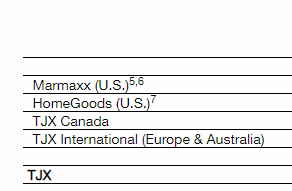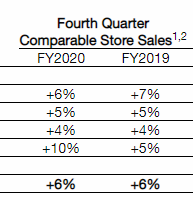Key Takeaways:
1. Earnings results better than expected and guidance was in-line, the stock is down because management indicated on the call that the same macro-economic factors they outlined a quarter ago continue to impact end customer spending. They continue to see elongated deal closures and scaled down or deferred projects.
2. While weakening business confidence and a resultant slowdown in enterprise spending is a headwind for them, the secular drivers that Cisco stands to benefit from are still early stages and a looming tailwind and thus not offsetting the current macro weakness they are seeing.
3. Their business transformation continues as their revenue mix shifts more toward more software and subscription.
Current Price: $47 Target Price: $63
Position size: 4.5% TTM Performance: -1%
CSCO reported better than expected Q2 results, beating on revenue (-3.5% YoY) and EPS and guided in-line with consensus. Q3 Revenue growth guided to -1.5% to -3.5%. Their higher mix of subscriptions is negatively impacting the top line by ~100bps. The weakness this quarter was attributed to a continuation of the weak macro environment they discussed last quarter, not company-specific issues. In August they first talked of early signs of macro weakness. That trend increased over the fall and has continued. Similar to other companies, management points to declining business confidence from uncertainties related to a US/China Trade War, Brexit, pending election year, conflict in Hong Kong and now the Coronavirus. While a slowdown in enterprise spending is a headwind for them, the secular drivers that Cisco stands to benefit from are intact. Long-term, Cisco stands to benefit from a product refresh cycle and evolving network demands that ultimately are driven by increasing data traffic. With rising data traffic, technologies are changing (5G, IoT, WiFi 6, AI) and networks are becoming more complex – Cisco’s products help companies solve for that by helping them simplify, automate, and secure their infrastructure. The difficult thing for Cisco right now is that these technologies are still early stages and still a looming benefit and thus not offsetting the current macro weakness they are seeing. Forward FCF yield is ~7%, and is supported by an increasingly stable recurring revenue business model and rising FCF margins. Their capital return program should limit downside – buying back shares and the 3% dividend yield that’s easily covered helps provide a floor.
Thesis intact, highlights from the quarter:
· Guidance was in-line, and they tend to guide conservatively. They don’t miss relative to the quarterly expectations they set for themselves. They have hit (or beat) their guided top line sales numbers in 51 of the past 52 quarters. This suggests that the weakness the have been seeing may be turning a corner given sales guided -2.5% at the midpoint (w/ -100bps impact from transition to subscription). This should improve as the year progresses and they lap easier compares (which have been especially difficult this quarter and last quarter).
· Order trends were broadly weaker as sales cycles elongated. Management again talked about smaller deal sizes and longer approval processes across industries.
· Product mix continues to improve with more software/subscription. By year end, they target 50% of their revenue to be from software and services. Subscription revenue was 72% of total software revenue, up 7pts YoY.
· Operating margins improved, benefitting from the positive impact of rising software mix. This transition will continue to drive an upward trend in CSCO’s margins over the next several years.
· By segment: Security was the strongest segment (+9% YoY) Infrastructure Platforms was the weakest (-8% YoY) segment, again driven by Service Provider routing. This should improve as Service Providers begin to build out the core of their networks for 5G. Management commented on the continued strength in the ramp of key new products – Catalyst 9000 and Nexus 9000 (both sold w/ 3-5yr software agreements). Service revenue was up 5%, driven by software and solution support.
· By end markets: Public sector was flat, enterprise was -7%, commercial was -4% and service provider was -11%.
· By geography: Americas was down 8%, EMEA was down 1% and APJC was down 4%. Total emerging markets were down 7% with the BRICS plus Mexico were down 20%.
Valuation:
· They have a 3% dividend yield which is easily covered by their FCF.
· Capital allocation strategy of returning a minimum of 50% of their FCF to shareholders annually through share repurchases and dividends. Their annual dividend is $6B.
· Forward FCF yield is ~7%, and is supported by an increasingly stable recurring revenue business model and rising FCF margins.
· The company trades on a hardware multiple, but the multiple should expand as they keep evolving to a software, recurring revenue model. Hardware trades on a lower multiple because it is lower margin, more cyclical and more capital intensive.
Thesis on Cisco:
· Industry leader in strong secular growth markets: video usage, virtualization and internet traffic.
· Cisco is the leader in enterprise switching and service provider routing and one of the few vendors that can offer end-to-end networking solutions.
· Significant net cash position and strong cash generation provide substantial resources for CSCO to develop and/or acquire new technology in high-growth markets and also return capital to shareholders.
· Cisco has taken significant steps to restructure the business which has helped reaccelerate growth and stabilize margins.
$CSCO.US
[tag CSCO]
[category earnings]
Sarah Kanwal
Equity Analyst, Director
Direct: 617.226.0022
Fax: 617.523.8118
Crestwood Advisors
One Liberty Square, Suite 500
Boston, MA 02109
www.crestwoodadvisors.com
PLEASE NOTE!
We moved! Please note our new location above!





